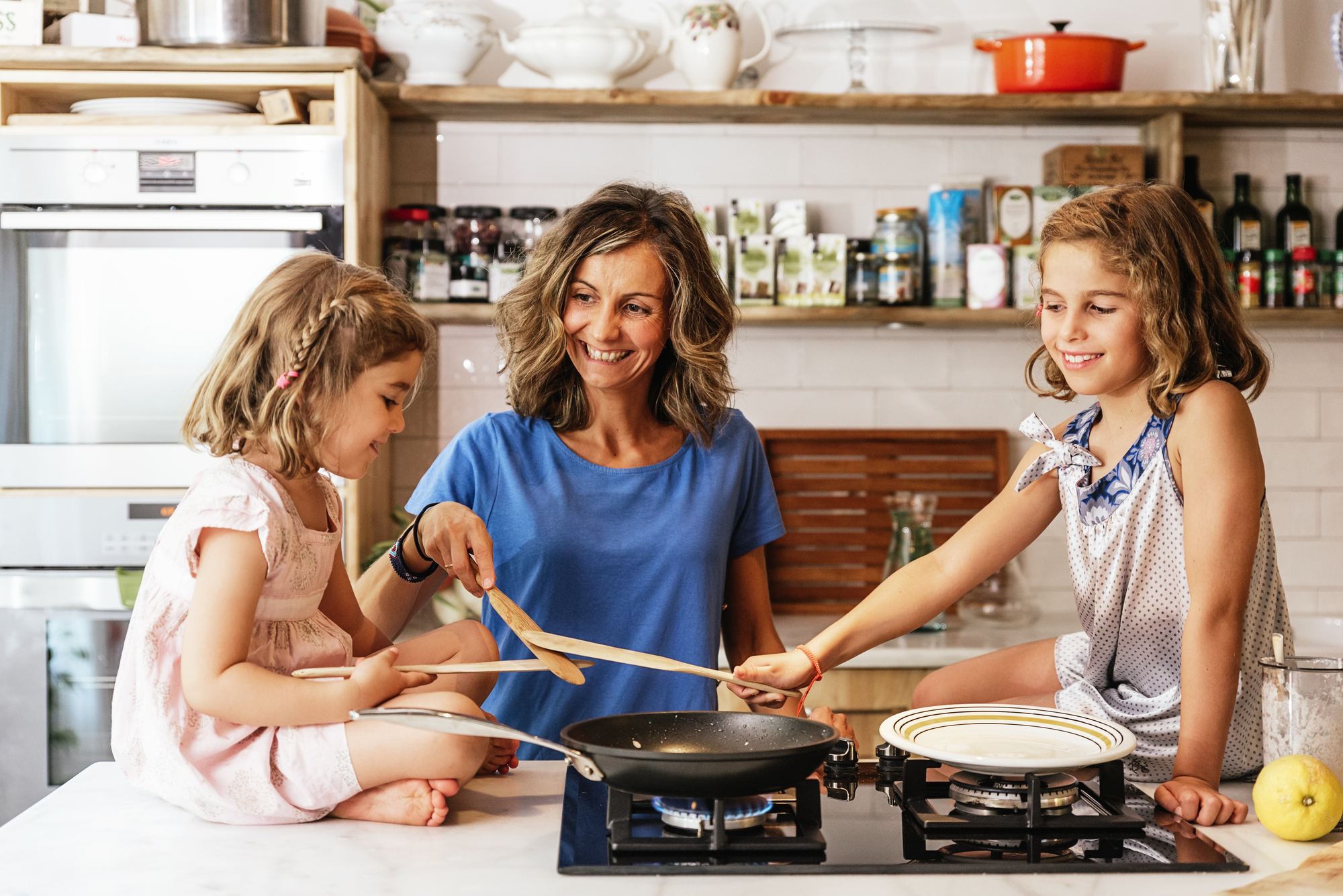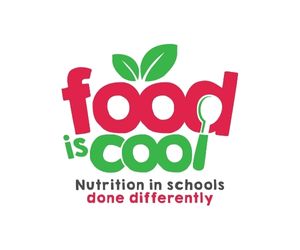Cooking with children can be a rewarding and educational experience. Let’s break down some of the benefits of cooking with children into a recipe for success!
Cooking doesn’t just mean sitting in front of a stove or kneading bread. It can, but it’s all about the process, from the very start to beyond the end product (cleaning the kitchen!). It includes all of the actions, like deciding on which recipe to make, and getting the ingredients needed, from the shops, the garden or your fridge/pantry, to cleaning up afterwards. The best part? Is that you can get a child to help with any step of the process. It can be opening the fridge, reaching for something in the pantry, having a go at cracking an egg, holding a spoon, assisting in choosing the recipe from a cookbook (which then re-enforces reading skills), and so much more.
Cooking with children can have numerous benefits, including:
- Developing practical skills:Cooking with children helps them develop practical skills such as measuring ingredients, mixing, and following instructions.
- Boosting confidence and independence: Cooking with children can boost their confidence and help them feel independent, as they get to see the results of their efforts and accomplishments.
- Encouraging positive eating habits:When children are involved in cooking, they create an association with food, and help form habits with that food for life. This can lead to children being more adventurous with foods, and helping them have a greater variety in their diet.
- Improved food preparation skills:are important in improving children’s fruit and vegetable intake.
- Increasing food variety:Children will also eat more when they prepare the food themselves. Getting children involved in the kitchen during cooking is a great way to help children increase food variety, and to try new foods. Be careful though- it’s important to cook a variety of foods with children, so that they’re not only associating cooking with certain foods (i.e. cookies or cake).
- Enhancing communication skills: Cooking with children can provide an opportunity to develop communication skills, as children learn how to give and receive instructions, ask questions, and express themselves.
- Strengthening family bonds: Cooking together can be a fun and engaging activity that can bring families together and create cherished memories. Plus, the sense of smell is closely related to memory in the brain, so the smell of cooking/baking can create beautiful memories for your children that are life long.
- Developing creativity and imagination: Cooking with children encourages them to be creative and use their imagination when coming up with new recipes or experimenting with different ingredients.
- Math and science: Measuring ingredients, counting, and learning about different chemical reactions that occur during cooking are all activities that build on math and science education.
- Reading and following Instructions:Reading and following recipes, understanding food labels, and developing their reading skills.
- Motor Skills: Developing hand-eye coordination, fine motor skills, and dexterity through tasks such as chopping, mixing, and kneading.
- Creativity and Imagination:Experimenting with different ingredients and flavors, creating their own recipes, and using their imagination to come up with new ideas.
- Independence and Responsibility: Taking on tasks and responsibilities in the kitchen, such as setting the table, washing dishes, and cleaning up after cooking.
When you cook with children, you are not only teaching them how to cook, but you are also modeling important behaviors and attitudes towards food and cooking. Here are some ways to role model to your child while cooking:
- Demonstrate a positive relationship with food: Show your child how you treat all foods equally so that no particular food sits on a pedestal.
- Practice food safety: Model safe food handling practices, such as washing your hands, keeping cooking surfaces clean, and ensuring food is cooked to the appropriate temperature.
- Show appreciation for different flavors: Demonstrate your love and appreciation for different flavors and cuisines. Encourage your child to try new foods and expand their palate.
- Encourage creativity: Model creativity and encourage your child to experiment with different ingredients and flavors. Show them that cooking is an opportunity to be creative and have fun.
- Take your time: Demonstrate the importance of taking your time while cooking and the value of patience. This can help your child understand that cooking is a process that requires time and attention to detail.
- Have a positive attitude: Model a positive attitude towards cooking and food. Show your child that cooking is a fun and enjoyable activity that can bring people together.
And above all, have fun! Cooking with children can be a fun and enjoyable experience. Encourage them to have fun and enjoy the process, and remember that the goal is to create a positive experience that they will remember for years to come.









